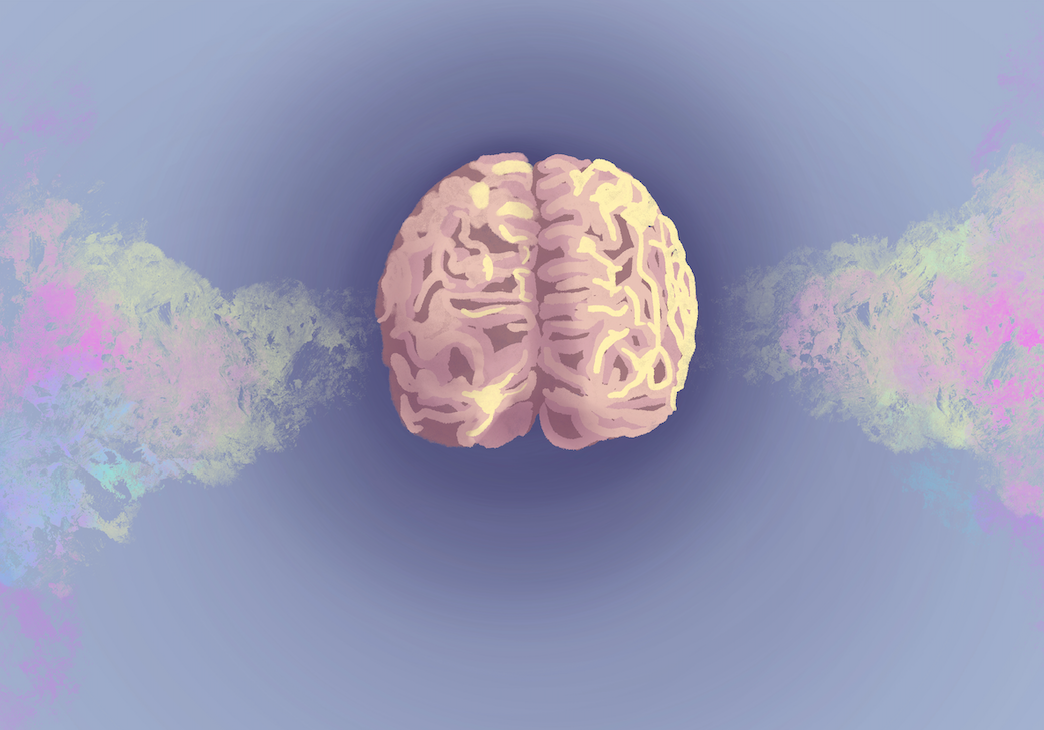Why I miss the noise in my mind
December 4, 2020
 This
piece represents the opinion of the author
.
This
piece represents the opinion of the author
.
 Kyra Tan
Kyra TanDuring my first year on Bowdoin’s campus, thousands of questions would swim through my head on any given day. Some of them would be necessary (Thorne or Moulton today?), others slightly less so (What would my psychology professor look like without his famed beard?). The most common questions were automatic and negative—Why would you say that? Should you really wear that today? Does this person actually want to see you? What if you don’t belong here?
In order to get through a day, I couldn’t entertain most—if any—of these questions, but ignoring them did nothing to make them disappear. They were annoying, predictable fixtures. Some days, I was equipped to deal with them; other days, it felt nearly impossible. I could always count on them to be there, regardless of how much I could count on myself to disregard them.
The first thing that I noticed when academic and student life moved online in March is that, all of a sudden, the questions stopped coming. I would speak in class or during a Zoom meeting, and then instead of spending the following minutes dodging attacks from my own mind, my thoughts would settle without disruption.
For a while, I was relieved. I thought maybe this was an indication that I was finally gaining my footing and becoming the confident, well-adjusted person that I had always been on the inside. I thought maybe I had done the impossible. I thought that maybe I had surmounted the insurmountable. I thought that maybe I had crossed the finish line, and that maybe I had gained enough perspective and maturity to be able to part with my self-doubt and to feel comfortable with myself and my decisions. After a while, I began to understand that none of these assessments were correct.
I am a nervous person. Regardless of how confident or well-adjusted I will ever become, I will always be a nervous person. My nervousness is not a metric for how I view myself, but it is an excellent metric for how I view other things. If I care, I am nervous; if I am not nervous, I probably do not care. This new silence in my mind was not a symptom of personal growth, but instead a symptom of classes—and Bowdoin—losing meaning to me.
The pandemic has made a lot of things personal. Millions of people have lost loved ones to COVID-19, and millions more know someone that was affected. We are in a devastating economic recession and a climate crisis. People that look like our friends, relatives, loved ones and mentors continue to suffer from brutality and hate. I don’t think that I have ever felt more connected to young people or to the progressive movement than I have in these past nine months.
But the pandemic has also made a lot of things impersonal. Our academic, extra-curricular, professional and social lives exist on the same few screens. Our phones, laptops and iPads are now some of the only ways that we can connect with the things that matter to us, and that is far above their pay grade. These devices were never meant to be a substitute for meaningful academic and social interactions. When I look at the faces of my professors and peers on my laptop screen, I notice the distinct lack of human energy between us. I can’t bring myself to feel impassioned because these interactions hardly feel real.
I don’t miss the questions. I don’t miss the way that my brain used to erupt into noise every time I spoke in class or put on a new shirt or showed up at a friend’s dorm room, but I wholeheartedly miss hearing that dreadful noise and knowing that there were people, places and things in my life that were profoundly affecting me. I can’t help but wonder when I’ll hear that noise again.
Jane Godiner is a member of the Class of 2023.
Comments
Before submitting a comment, please review our comment policy. Some key points from the policy:
- No hate speech, profanity, disrespectful or threatening comments.
- No personal attacks on reporters.
- Comments must be under 200 words.
- You are strongly encouraged to use a real name or identifier ("Class of '92").
- Any comments made with an email address that does not belong to you will get removed.

I just wanted to say thank you. This article validated me in a way I didn’t know I needed, and helped me come to the same realization you did. Ridiculously helpful, especially when people remarked how “unstressed” I seemed during that first remote spring, when in reality, I just found it hard to care about things.
Articles like this makes me proud to be a Bowdoin student. I hope we hear that noise again soon ??